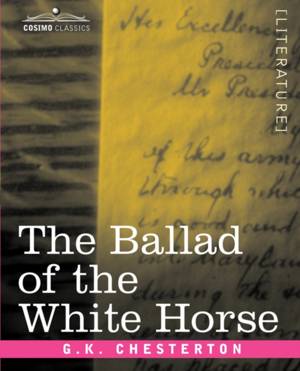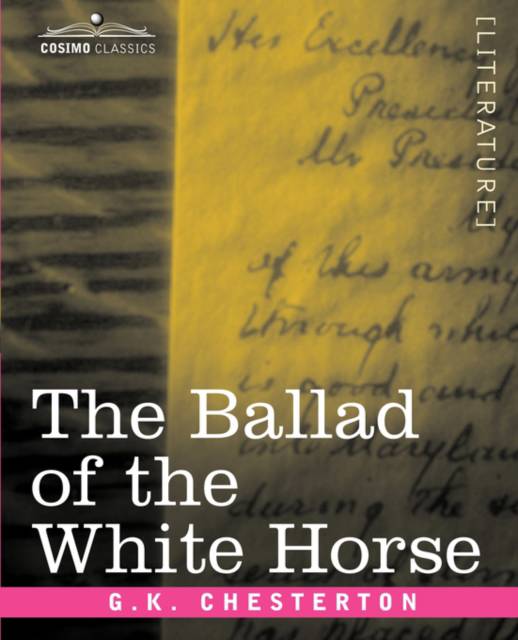
Door een staking bij bpost kan je online bestelling op dit moment iets langer onderweg zijn dan voorzien. Dringend iets nodig? Onze winkels ontvangen jou met open armen!
- Afhalen na 1 uur in een winkel met voorraad
- Gratis thuislevering in België vanaf € 30
- Ruim aanbod met 7 miljoen producten
Door een staking bij bpost kan je online bestelling op dit moment iets langer onderweg zijn dan voorzien. Dringend iets nodig? Onze winkels ontvangen jou met open armen!
- Afhalen na 1 uur in een winkel met voorraad
- Gratis thuislevering in België vanaf € 30
- Ruim aanbod met 7 miljoen producten
Zoeken
Omschrijving
British writer GILBERT KEITH CHESTERTON (1874-1936) expounded prolifically about his wide-ranging philosophies-he is impossible to categorize as "liberal" or "conservative," for instance-across a wide variety of avenues: he was a literary critic, historian, playwright, novelist, columnist, and poet. His witty, humorous style earned him the title of the "prince of paradox," and his works-80 books and nearly 4,000 essays-remain among the most beloved in the English language. The only work he dedicated to his wife, this may have been Chesterton's own favorite. Considered by some to be the last great epic poem in the English language, this 1911 work sings the praises of the English king Alfred, who battled the invading Danish Vikings in AD 879. Chronicling not only a great military victory but, the cultural triumph of Christianity over paganism in the Dark Ages, this unfairly forgotten literary masterpiece will delight students of English poetry.
Specificaties
Betrokkenen
- Auteur(s):
- Uitgeverij:
Inhoud
- Aantal bladzijden:
- 104
- Taal:
- Engels
Eigenschappen
- Productcode (EAN):
- 9781602068889
- Verschijningsdatum:
- 1/11/2007
- Uitvoering:
- Paperback
- Formaat:
- Trade paperback (VS)
- Afmetingen:
- 190 mm x 235 mm
- Gewicht:
- 195 g

Alleen bij Standaard Boekhandel
+ 32 punten op je klantenkaart van Standaard Boekhandel
Beoordelingen
We publiceren alleen reviews die voldoen aan de voorwaarden voor reviews. Bekijk onze voorwaarden voor reviews.











